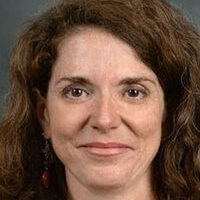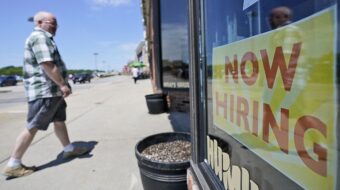
I first saw the headline on Google. Something about “Britain’s Got Talent ‘never been kissed’ Susan Boyle attracts wide viewership.” Yes, the never been kissed part perked my interest.
I had to know: who was Susan Boyle and why is she headlining entertainment news?
At the time the YouTube video had only 5 million viewers. It’s now up to more than 100 million.
Britain’s Got Talent is a lot like American Idol or America’s Got Talent. There are the same two male judges Simon Cowell and Piers Morgan. The third judge – a woman – is Amanda Holden, who makes the best statement after Boyle’s performance.
The well-produced segment starts out with bits and snatches of shots of Susan Boyle: eating, and talking about how she’s never been married (– or kissed), she’s unemployed and she lives with her cat Pebbles. Already they are leading the audience down a certain stereotype-path.
Then she comes out on stage. A rotund middle-aged woman who jokes around with Cowell in a way that doesn’t go over with the audience.
I reacted negatively to the judging-a-book-by-its-cover attitude pervasive in the scene. I took it personally. After all I’m a middle aged woman – and perhaps even “frumpy-esque” although it wouldn’t be something I’d want to admit.
The faces on some of the audience members when she comes on stage and answers judge Simon’s questions – from the rolling eyes to the snarky whispers – showed how they were expecting, no, perhaps hoping for, failure.
What does this “old maid” who lives with her cat, Pebbles, says she has never dated or been kissed, have to offer us? How could she even want to be star? the collective expectation seemed to say.
Always pulling for the underdog, and realizing she must blow their socks off or else she wouldn’t be this media phenom, I waited patiently for the pudding.
Then it comes. Boyle sings. And something extraordinary happens.
Her song selection is exquisite, “I Dreamed a Dream” from “Les Miserables.” She handles the stirring music with a strong, clear tone. Not at all like the Broadway-esque singers with the big voice and vibrato. But something much more earthy and real.
However, it wasn’t only her truly beautiful voice. It was what she accomplished with it. Her singing, like a trumpet at Jericho, blew down the wall of cynicism and snobbery. At that moment we all re-learned Mom’s moral lesson “don’t judge a book by its cover.”
Yet, it wasn’t only serving up a big piece of humble pie and yelling hooray for a working-class, small town older woman. It went beyond.
In its place, something more satisfying than humble pie was created. It was a collective recognition of humanity. That we are all – or at least know — a Susan Boyle.
Don’t we all wish to be recognized for some talent beyond our looks? To have our talents come shining through, like our “True Colors” ala Cyndi Lauper?
Or don’t we all have a lifelong dream, like Boyle, that we can – when the pressure was on – see that dream come true.
Perhaps, just as importantly, isn’t finding something hidden away among the ordinary, fun and exciting too? It’s like finding some hidden treasure among the ordinary flotsam and jetsam of life.
Boyle gave us a collective gift that together we all discovered a treasure. (Kudos to the director/producer of Britain’s Got Talent for really playing that to the hilt. It was on one level so contrived, but I – and it seems millions of others – really wanted to be carried away in the real life fairy-tale.)
One of my favorite childhood stories came from Pippi Longstocking and her “thing-finding” expeditions. The idea of finding small treasures in your daily walk to and from school gives a sense of wonderment to the rote.
The middle-aged “frumpy” woman or “Old Maid” or “cat lady” has been such a constant stereotype in many cultures. When such characters become the heroines it is a life affirming story.
The blowing away of such a stereotype has also been a subject in literature and film. Who can forget when Kathy Bates, in the movie “Fried Green Tomatoes,” smashed into the car of two taunting young women who “stole” her parking spot near Winn-Dixie.
Set off by the younger women saying, “Face it lady, we’re younger and faster,” Bates turns into “Towanda,” her feminist superhero alter-ego, and rams the sporty VW convertible repeatedly, destroying its bumper. When the high-heeled, mini-skirted, well-coiffed youngsters came running back Bates delivers the line, “Face it girls, I’m older and I have more insurance” and drives away laughing. A great movie with a great scene, but you do want to bash these younger women.
Boyle’s performance, however, replaced that feeling – at least for me — of cynicism with celebration, which was a much more pleasant delivery of a lesson in dignity.
Hopefully, Boyle will be able to ride this wave of adoration with the dignity and grace she showed on the show. I hope she will be able to withstand those in the entertainment industry that feed on cynicism. Starting with those who want to completely change her. And I’m not talking about makeovers. What woman (or man) would turn down a day at a salon?
Not it’s the vultures who feed on the current big thing and take it to its maximum private profit making ability, about whom I worry.
Yet this sensible, solid Scottish woman – with all her life’s experiences, friends, church and community – seems a formidable force against such negativity. She’s already conquered it once.












Comments